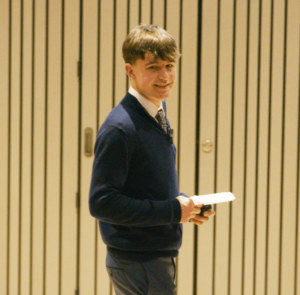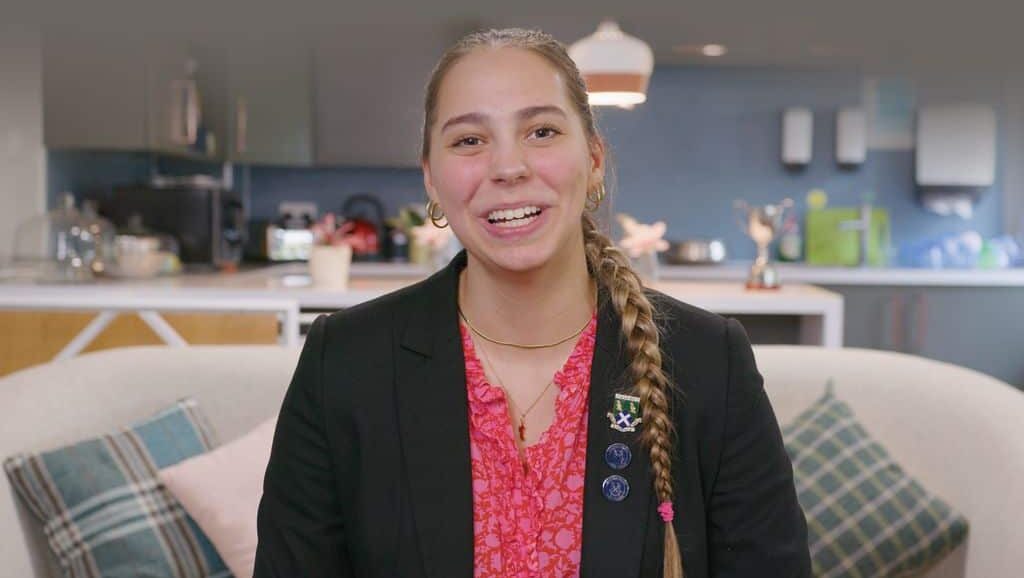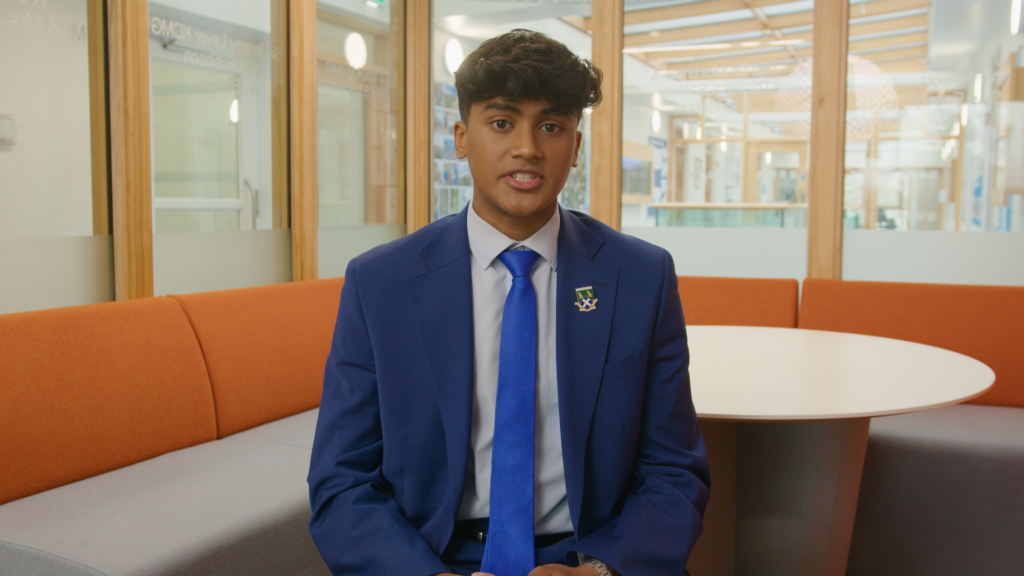Talks Inspiring Bradfieldians (TiBs) continue to provide a platform for our pupils to present discussions, ideas and personal stories to educate and inspire their peers. Deputy Heads of School Zahra (I) and Enoch (D) have excelled as chief organisers of this pupil-led initiative that is now in its third year with talks on topics from living in a post-truth world to the origins of House music.
You can stream our Talks Inspiring Bradfieldians on our dedicated webpage:
Theo (G) gave the first TiB of the year during which he discussed the state of the UK prisons and exactly who we should be modelling our system on if we are to meet the aims set out by the Department of Justice.
“Do they protect the public? Do they punish the offenders? Do they rehabilitate the prisoners? I think it’s time we learnt from others.”
In his TIB, Fraser (H) shared his passion for one of the world’s greatest sporting events, delving into its history and discussing the spirit of The Ryder Cup.
“Drama, tension, incredible golf, camaraderie and sportsmanship are served in equal measure, captivating an audience of millions around the world. It is an event which transcends sport yet remains true to its founder, Samuel Ryder.”
Fifth-former Daisy (K) explored the origins and biases associated with the word ‘feminist’ during her thought-provoking TiB as she explained how everyone has a role to play in the fight for gender equality.
“By using the ‘F’ word more and by understanding its power, you can bring about change for yourself and for those you care about. The ‘F’ word is feminist, obviously.”
Francesca (J) used her TiB to discuss the damaging effect the fashion industry has had on young impressionable audiences.
“The truth is that fashion has an inextricably close relationship with the body and so the industry manifests itself with many issues which affect us psychologically. Consequently, we must create a positive relationship with it.”
Sebastian (G) took to the stage to present how we are living in a post-truth world and he laid out his case for how we must confront it through education.
“We need to understand what post-truth is, when it is being used to trick us and how it can be used to work for us. It is not a substitute for facts or logic and is something we at Bradfield need to have our eyes wide open to.”
Hoping to study Medicine when she leaves Bradfield, Flora (J) shared her personal experiences of volunteering in an HIV clinic in Tanzania and spending time with the Maasai.
“You would typically associate HIV being present in adults however in Tanzania it is a problem that affects the younger generation as much as the older one. England, with the same population as Tanzania with 67 million, has 95,900 people living with HIV whereas the latter has 1.7 million cases.”
In his TIB, Alex (E) explores the complex issue of body image, its possible effect on mental health and the importance of body acceptance.
“If you go out of your way to help someone and make them feel as comfortable and secure about themselves as possible, then they will be forever grateful for your support and kindness.”
Also hoping to study Medicine, Jemma (I) decided to focus on head injury in sport, looking specifically at teenagers. Her talk examined why most injuries are experienced by young men and challenged the misplaced beliefs in current safety equipment and measures.
“2.3 million teenagers under 17 received a diagnosis of a concussion or head injury in 2022, with the highest incidence between 15 and 19 years old and one in five teenagers reporting that they have been diagnosed with at least one concussion.”
Lukas (F) discussed how the Olympic motto of ‘Citius, Altius, Fortius’ or ‘Swifter, Higher, Stronger’ is being delivered by modern athletes, enabling them to outperform their forebears by almost unbelievable margins in some sports using ‘technological doping’, high-performance sports equipment, whilst questioning the fairness of this.
“In 2020 Eliud Kipchoge won the Olympic marathon in Tokyo in the time of 2:08:38 seconds by contrast in 1904 the Olympic marathon winner, Tom Hicks, ran the distance in 3:48:03, how is this possible?”
Jemima (M) compared the difference in the structures of a bilingual and non-bilingual brain, explaining the role that neuroplasticity has to play in this. Learners are however advised not to rest on their laurels, as without practice this neuroplastic effect reverses should the newly acquired skills not be used.
“The volume of the hippocampus, the part of the brain responsible for memory formation and spatial memory, has been shown to increase in young adults learning a language and have benefits beyond linguistics into wider knowledge acquisition.”
A final huge thank to Theo (G) for lifting the tempo of the evening for the last talk of the evening on the US origins of House Music.
“DJs explored ways they could keep people dancing without interruption, this new sound was a fusion of disco, funk and electronic experimentation which extended the intro, added beats and breaks and in doing so rejuvenated the songs.”

You can stream our Talks Inspiring Bradfieldians on our dedicated webpage:





